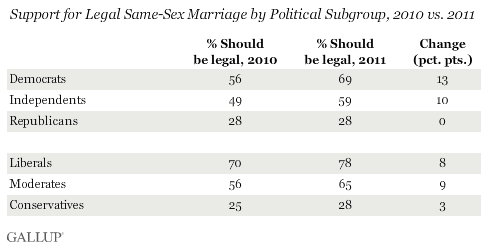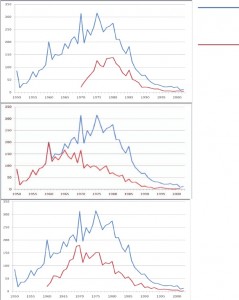With the presidential election cycle getting up to speed, it’s time for reporters and yakkers like me to stop writing about “social conservatives” as if they were an identifiable segment of the voting population. I say this as someone who has happily been using the term since late 2008, when it looked like the religious right was at least organizationally in eclipse, and that the GOP was engaged in a struggle to balance the competing interests of three types of conservatives: social, economic, and foreign policy.
But, as we’ve learned from survey data on Tea Party adherence, social conservatism is thoroughly enmeshed with economic conservatism. Even libertarian standard-bearer Ron Paul opposes abortion rights and same-sex marriage. Paul’s heterodoxy is in the foreign policy realm. American conservatives as a whole are way closer to neocon exceptionalism than to Pauline isolationism.
The point is that these days, virtually all self-described conservatives are social conservatives–and any GOP presidential candidate who wants to be viable has to present himself or herself as one too. The relevant lines of differentiation remain religious. It’s white evangelicals, not “social conservatives,” who looked to Mike Huckabee as their paladin. Social conservatives who happen to be Mormon disliked Huckabee and have Mitt Romney to cleave to. As for frequent Mass-attending white Catholics, they strongly preferred McCain over Huckabee last time around, and need to be carefully differentiated this time around.
Relying on “social conservatives” to analyze the race for the GOP presidential nomination conveniently secularizes our political discourse. For even as religion has always served as a marker of their voting patterns, Americans have always felt uncomfortable about owning up to it. But the term obscures the real divisions in the Republican electorate. Let’s drop it.
Update: Another way to make the point is by noting that the GOP has simply become the (increasing isolated) political home of social conservatism. Thus, according to the latest Gallup Survey showing that most Americans now support same-sex marriage, support among Democrats and Independents has shot up remarkably over the past year, while support among Republicans has not shifted at all.


